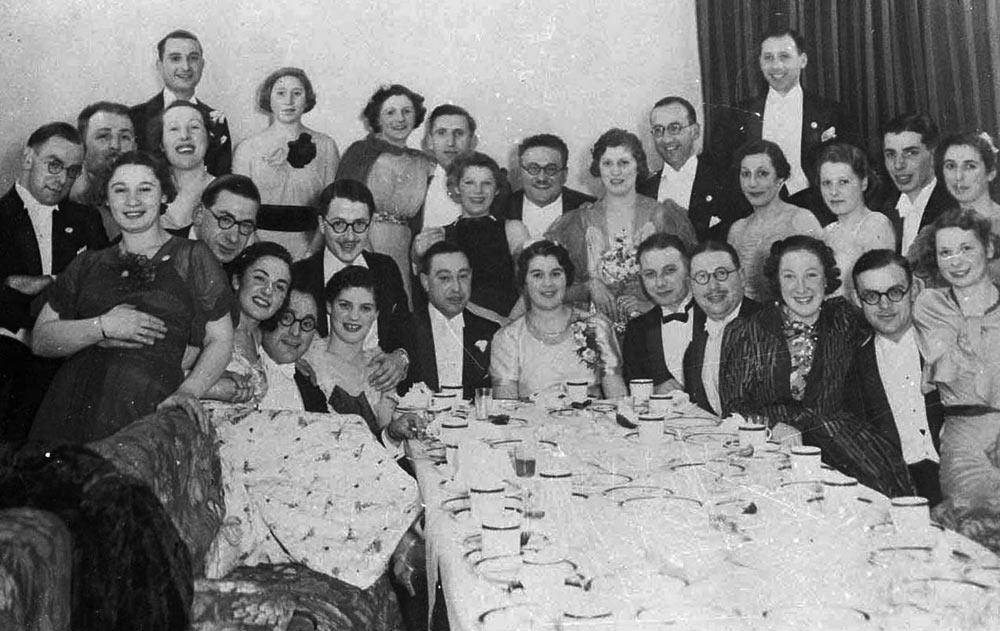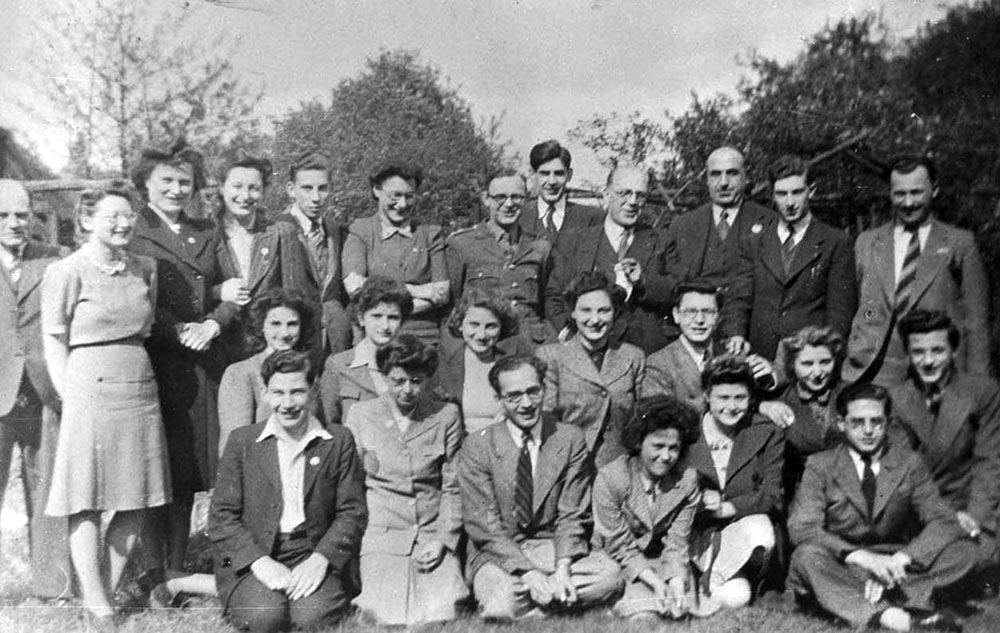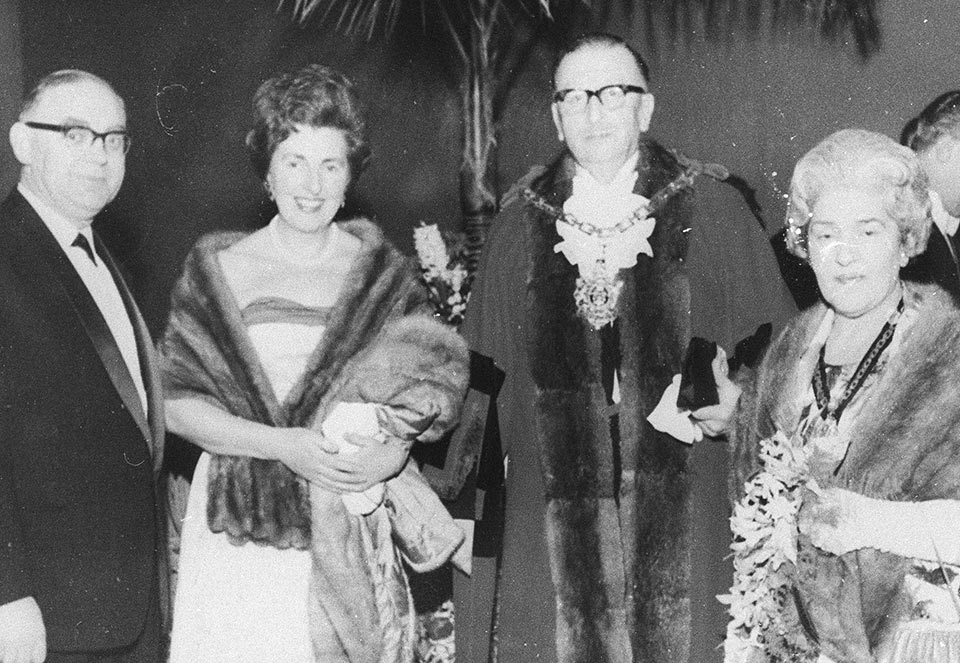Swipe to read
Sidney describes how his parents’ background and experiences had an impact on his identity.
Read Transcript
“It’s one of my major regrets, that I never was able to establish a sort of discussion with him about his past. When I talk to my wife now she says the same about her relationship with her parents. They didn’t talk about the past. I don’t know why. Whether it was a desire to blot out what they had experienced there. Because there is no doubt why they came to this country. This was the great, free mighty, liberal England. Offering hope to people. And they were escaping from economic poverty and religious persecution …
Did they speak Yiddish?
Yes, Yiddish-speaking, and they both spoke Polish. My mother retained her conversational Polish the whole of her life. She died when she was over 80.
So what language were you brought up in, in the home?
English. Brought up pure English-speaking. The only time Yiddish was used was when my parents didn’t want us to know what they were talking about … I was very disappointed because when I went to grammar school, German was one of the languages I took. So Yiddish, of course, is just bastard German. And as a result, I have now acquired and use and can speak fairly well in Yiddish. It’s invaluable. There is a great warmth about that language … Our parents came from a foreign environment. And their ambition in life was to see that their children grew up economically secure and not encountering the economic difficulties that they had encountered. And socially and politically they wanted us to be young Englishmen of the Jewish faith.”
Sidney explains his desire to become a Labour councillor in Salford in 1946.
Read Transcript
“The fact that I was Jewish made no difference to them at all. I was a socialist candidate, trying to build a new Salford. What I mean to me was, as I say, that here was another rung in the ladder that I was going to try and get onto. Michael [Fidler] and I had two things in common. Not conceit but a sense of confidence in our ability to achieve the targets and ambitions that we were after. Some of them might not have been attainable. But I felt that if I got on the council, I’d be able to show people there that there was a sort of fertility of mind. That I could see what was wrong in the planning of the city. I could see what was wrong in our education sector. Call it conceit if you like. But it isn’t necessarily conceited to feel that you have something positive to contribute to the wellbeing of other people … I also felt that I would be able to do something for the Jewish community and its relationship with others. I’ve been a very, very strong believer in Jewish Christian relations … I saw going on the council opened this was new panorama … I think every time anybody Jewish achieves anything personal they are seen as a representative of the community. It also works the other way round.”
Sidney describes the importance of his Jewish faith.
Read Transcript
“First of all, I have to ensure that my observance of religious standards is not limited to holding a prayer book in my hand and reciting a ‘rote’ prayer. My religion is the kernel of my existence, it is the yardstick by which I perform … To me, the man whose religion is limited in the case of a Jew to Friday night and Saturday, or for a non-Jew to Sunday, and then during the rest of the week couldn’t care a damn for his fellow man, that isn’t religion. It is a demonstration and show of some form of symbolism. To me, religion has meant, this standard of morals and ethics. Worrying about the poor is to me as much a part of religion as standing and holding a prayer book. Care and consideration for the needy is an integral part of any individual claim to be a decent human being. My home has to be kosher. I know that we carry on some of the very ancient practices. We don’t switch lights on or off on Shabbat but that doesn’t stop me having time switches which give me all the modern technology benefits. Many religious people in Broughton Park don’t have a television. I enjoy television. I’m selective about what I watch. But Kashrut in the house – separation of milk and meat dishes, things like that … Mezuzahs on all the internal doors as well. You have mentioned that even in the army I put on my phylacteries every morning and pray three times a day. That still goes on.”
Sidney describes his role as ‘leader’ of the Jewish communities in Manchester.
Read Transcript
“We have got to realise the limitations and power and authority of ‘the leader of the community’… Every Jew feels himself better fitted to lead his colleague in whatever he is doing – so the role that you occupy is almost one, it has to be a role of acceptance of your power of your limitations of your role through the community. And this comes from the Rep Council only. Now the Rep Council has to be talked about as being a talking shop – if people would bother to read the constitution of the establishment of the Rep Council, they would realise that the council was set up as a co-ordinating body and therefore the role of the president is vastly different from that of the role, say, of the president of Heathlands … You can’t lead without the voluntary acceptance of your role … They lead those who are prepared to follow. You will always find that in every organisation and in every community, people who want to be individuals and individualistic and will not accept the right of anyone else to arrogate to themselves the power to speak on their behalf … I suppose now I see myself as an elder statesman. I don’t want to be involved in day-to-day problems. But having said that, I think it is Sonny Fromson and Joy Wolfe and others – they invariably say that although I am the president of this, that or the other, Sir Sidney Hamburger, the real leader of the community. I am flattered by that description, but it comes about I think because I don’t try to power by the table-banging attitude. But rather by trying to win people over by peaceful methods and I see my role there. I said I didn’t want to be involved in problems but there is hardly a problem in the community that somehow or other doesn’t end up on my desk or on my phone to be dealt with. I am happy to try and deal with these problems and flattered that people turn to me when they want guidance and advice.”



